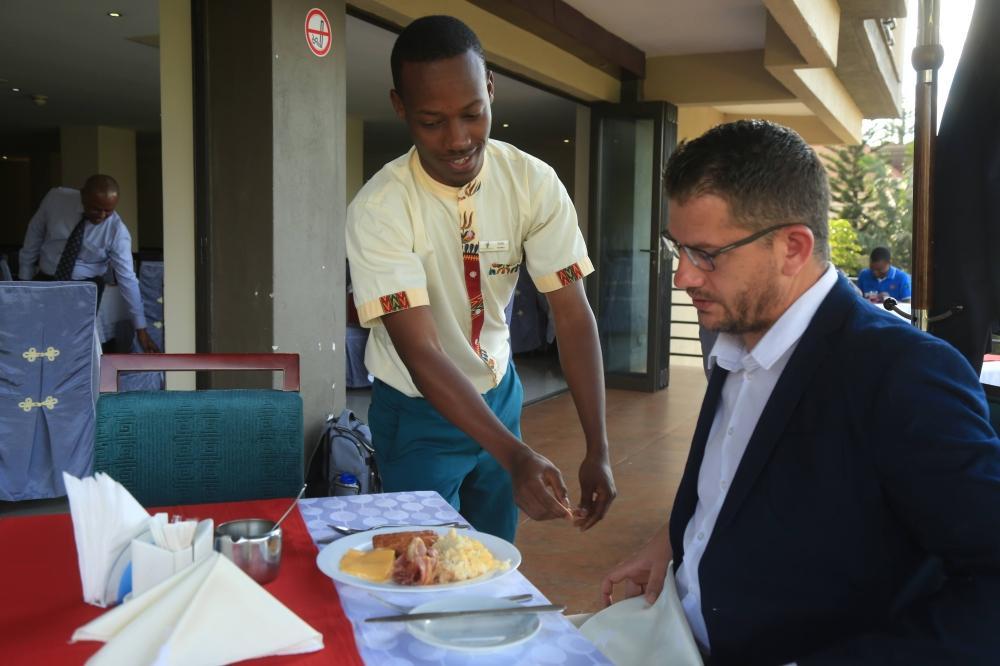Africa-Press – Rwanda. When businesses talk about service, they often obsess over the first impression. Smiles at the door, polished spaces, beautiful infrastructure. And yes, first impressions matter. But in my years of working with hospitality and service businesses, I’ve come to believe something else matters even more: the last impression.
The first impression gets you in the door. The last impression decides if you’ll ever come back.
I once ordered curtains from a local supplier. The first experience was flawless; after placing my order, they delivered the very next day. I was so impressed that I immediately placed another order for another room. This time, however, the story changed. I was promised delivery in three to four days. A week passed before the curtains arrived. Worse, they were the wrong size and had to be taken back for resizing. By the time they finally returned, the installation happened late at night while we were trying to put our babies to sleep. The difference between my first and second experience taught me an important lesson: customers remember the ending more than the beginning. And in this case, the last impression overshadowed the initial wow.
Psychologists call this the “recency effect”, we remember the highs and the lows of an experience, but most vividly, we remember how it ended. That’s why hotels make a point of asking, “How was your stay?” before you check out. It’s not just politeness. It’s a final chance to fix what went wrong, to ensure you don’t walk away with a bad memory. A strong farewell can soften earlier mistakes; a weak farewell can erase earlier wins.
I’ve also seen how powerful a thoughtful follow-up can be. In my previous article, I shared the story of a medical facility in Nyarutarama that called me a few days after my visit to check on how I was doing. It wasn’t about payment or paperwork. It was about me. That simple call turned a routine appointment into a genuine connection.
Recently, I learned about the 72-hour rule, and I urge every service provider to put this lesson into action. Reach out within three days to thank your customer, check in, or resolve an issue. It keeps the memory fresh, shows genuine care, and strengthens loyalty.
Unfortunately, too many businesses in Rwanda and beyond see service as a process to complete, not an experience to shape. The goal becomes “get the customer in the door,” not “keep the customer for life.”
We pour resources into marketing to attract new clients, yet forget how much cheaper and more rewarding it is to nurture the ones we already have. And I’ll be honest; I’m a culprit of this too. In the rush of chasing new opportunities, I sometimes forget that the true gold lies in caring for the customers who already chose me once. A positive last impression is the most cost-effective marketing you will ever do.
But here’s the challenge: creating lasting impressions should not be reserved only for major events, government functions, or VIP occasions. It must become the everyday standard of service. I understand that shifting behaviour is harder than building beautiful infrastructure, but true excellence comes from the human touch, not just physical design.
Imagine if every guest consistently left your business with a positive last impression. They would not only admire the quality of your service or product, they would talk about the warmth, care, and humanity they experienced. That reputation would set your brand apart in the market. Customers would return, recommend you to others, and your business would grow not just because of what you offered, but because of how you made them feel at the very end of their journey with you.
So, before the next customer walks out your door, pause and ask yourself: Am I sending this customer away as a critic, or as an ambassador of my business?
Because the truth is simple: the last impression lasts the longest.
The author is a certified hospitality trainer and Founder of Outstanding Solutions Afrika, a boutique hospitality and tourism consulting firm dedicated to transforming service excellence.
For More News And Analysis About Rwanda Follow Africa-Press






